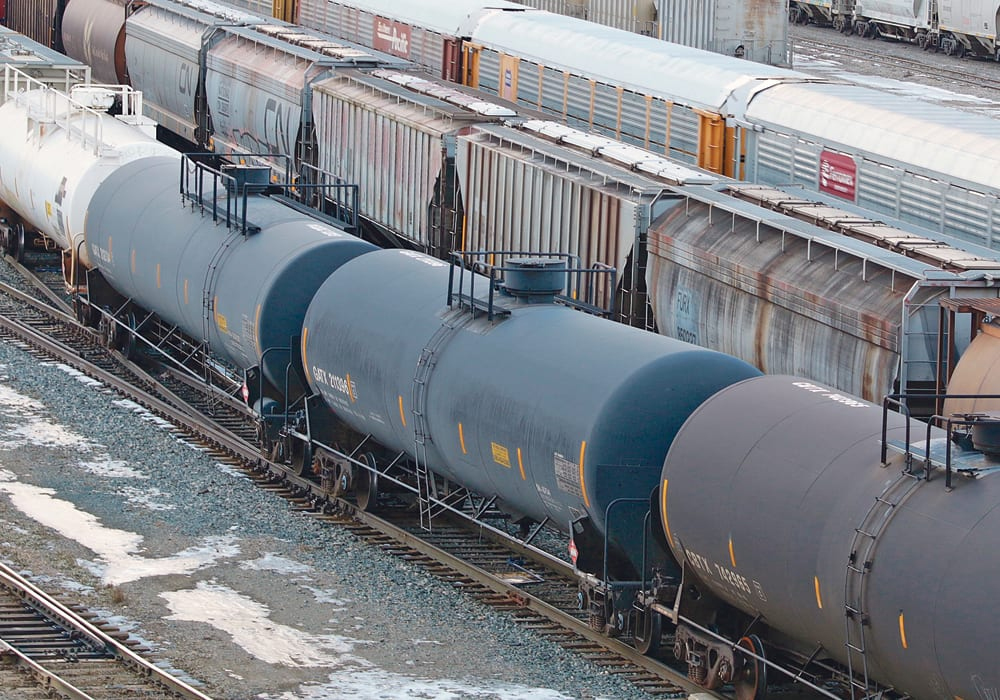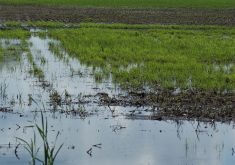In the end, even a Liberal government dedicated to the principle of collective bargaining couldn’t stand by and watch a railway strike/lockout inflict economic havoc across the country.
Whether the government has the authority to impose binding arbitration without parliamentary approval is a question to be debated, but the importance of ending the work stoppage is without question.
Well, it’s without question for a majority of Canadians. Big unions, the NDP and the National Farmers Union oppose binding arbitration, arguing that Canadian National Railway and Canadian Pacific Kansas City got what they wanted, and this is a way for the two railways to ignore the safety concerns of workers.
Read Also

Surviving a bad harvest day sometimes requires a little luck
Producer and writer Kevin Hursh shares a day of three potentially disastrous incidents as cautionary tales of farm safety for Prairie farmers in the midst of fall harvest work.
One of the main arguments from the left side of the political spectrum is that the railways are highly profitable and can easily afford to pay their workers more while instituting more safety guardrails. However, it isn’t really the railways that end up paying the bill. As a duopoly with limited competition, any increased labour costs will eventually be passed from the railways to rail users.
In the case of most grain movement, labour costs are baked into the formula for determining the maximum revenue entitlement. Increased costs allow the railways to extract more money for grain movement. Shippers pay the bill, but farmers pay in the end.
The government correctly determined that the collateral damage to the economy and the lives of so many people across the country had to be taken into account. A wide range of farm organizations came together to press for binding arbitration as a way to end the stalemate, but the ramifications of the work stoppage went far beyond grain movement.
It will be interesting to see how the government handles looming labour disruptions on the West Coast when the pain inflicted won’t be quite as widespread and visible. Big unions are quick to play the victim card, but they are a powerful force. Their priority is more money for less work. They oppose technological advances to maintain high-paying jobs.
How do other nations handle labour issues in the transportation sector? How much is Canadian grain discounted on the world market because buyers build in a price deduction for late and unreliable delivery?
Compared to other export competitors, we already have the disadvantages of being a long distance from port positions with a mountain range in the way of the most used route while dealing with winter weather that can be harsh. We can’t afford frequent labour disruptions on top of all the other challenges.
Some groups have long called for grain movement to be designated an essential service, but is that realistic? As a nation, we need to figure this out. No solution is going to be universally popular.
The Conservative party under Pierre Poilievre was notably absent in the debate leading up to the imposition of binding arbitration. It didn’t call for Parliament to be recalled to deal quickly with back to work legislation. In fact, it wasn’t publicly pressing the government in any fashion.
This silence wouldn’t have happened by accident. Conservative strategists must have decided there was more to lose by taking a position than just staying quiet and invisible. It’s not a defensible approach from a party hoping and planning to form the next government.
Canadians deserve to know how a Conservative government would have handled this situation. Beyond that, should they form government, do the Conservatives have a plan for how to address this ongoing problem?
Kevin Hursh is an agricultural journalist, consultant and farmer. He can be reached by e-mail at kevin@hursh.ca.
















